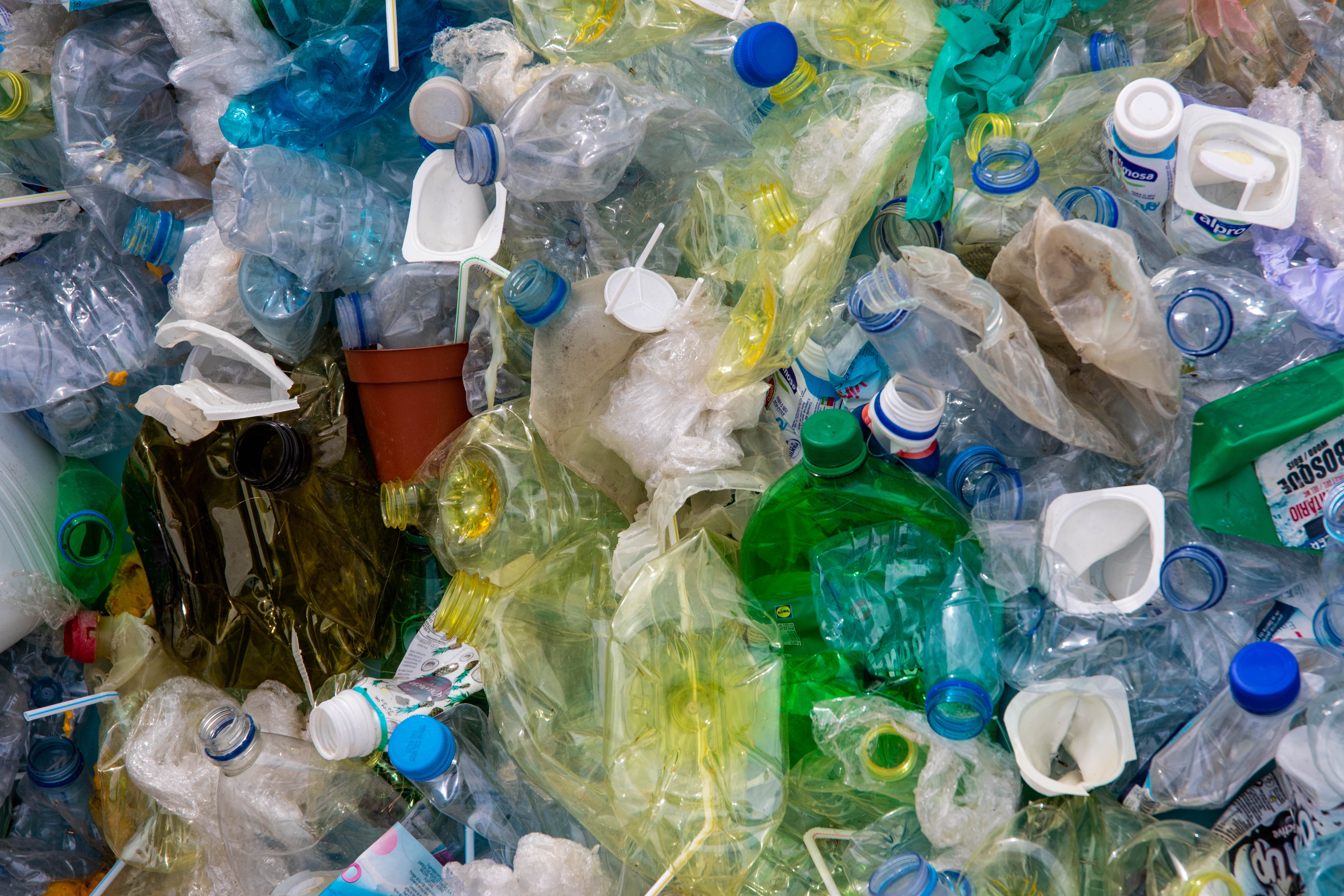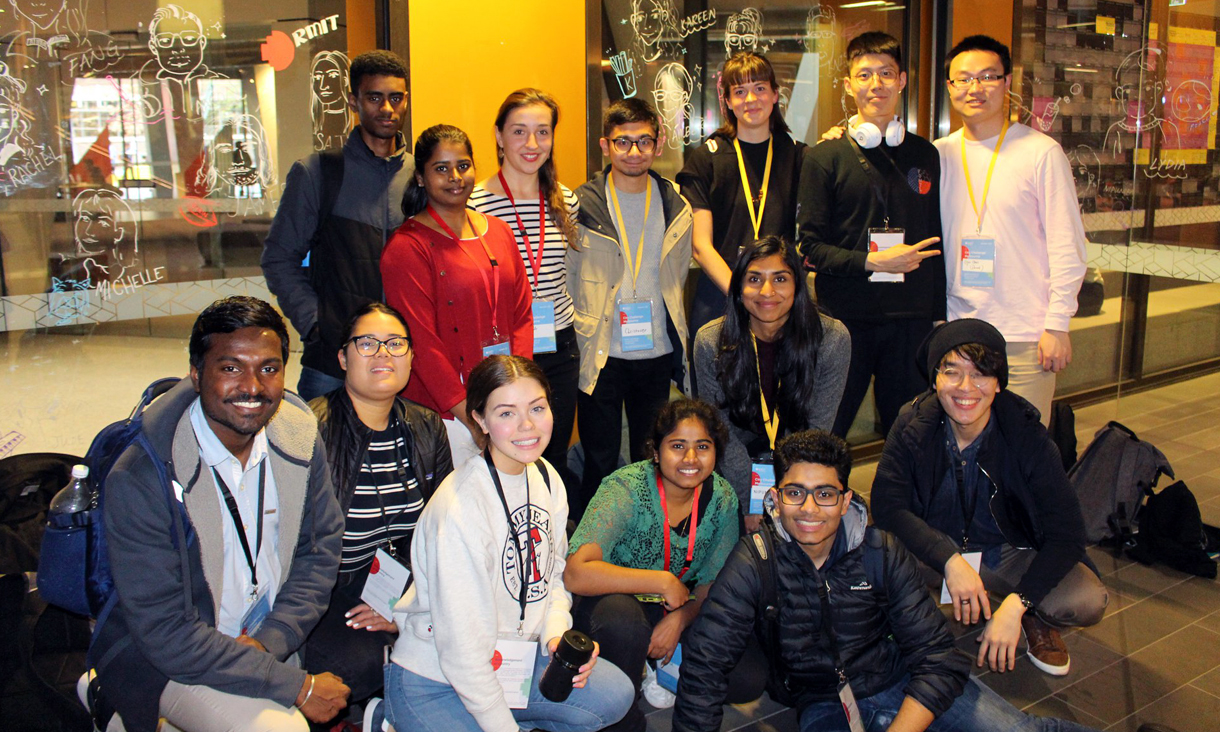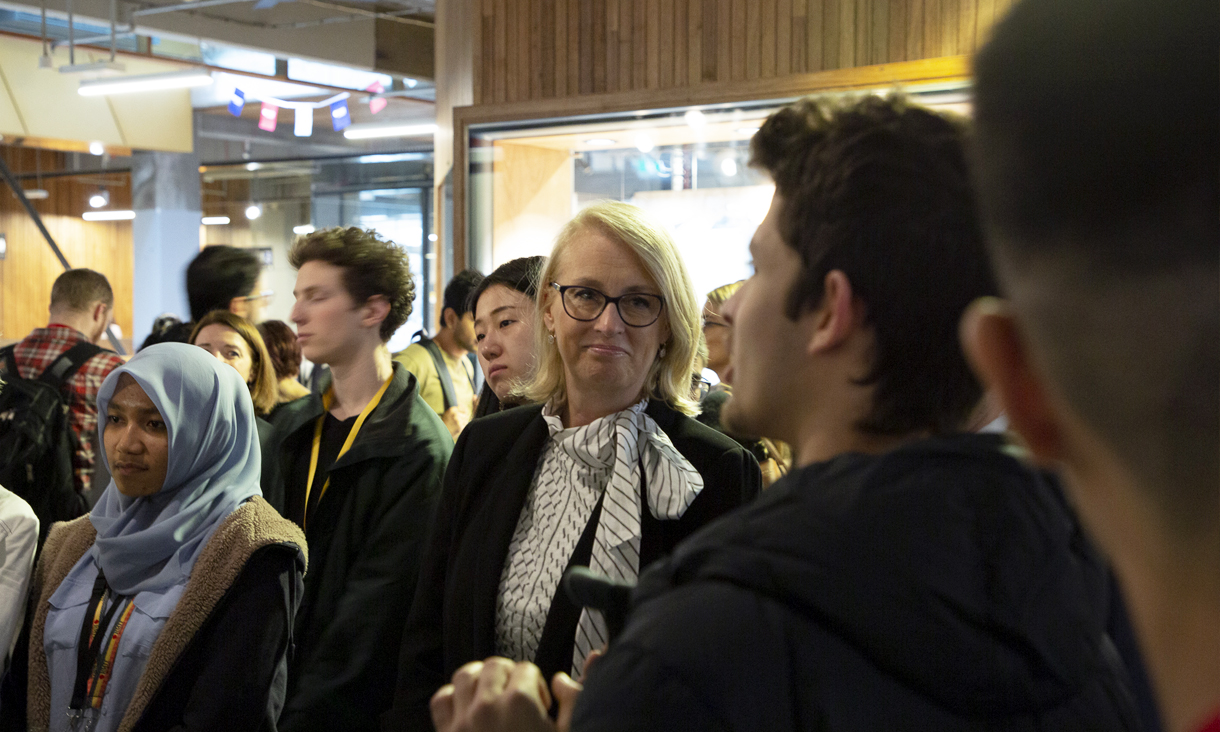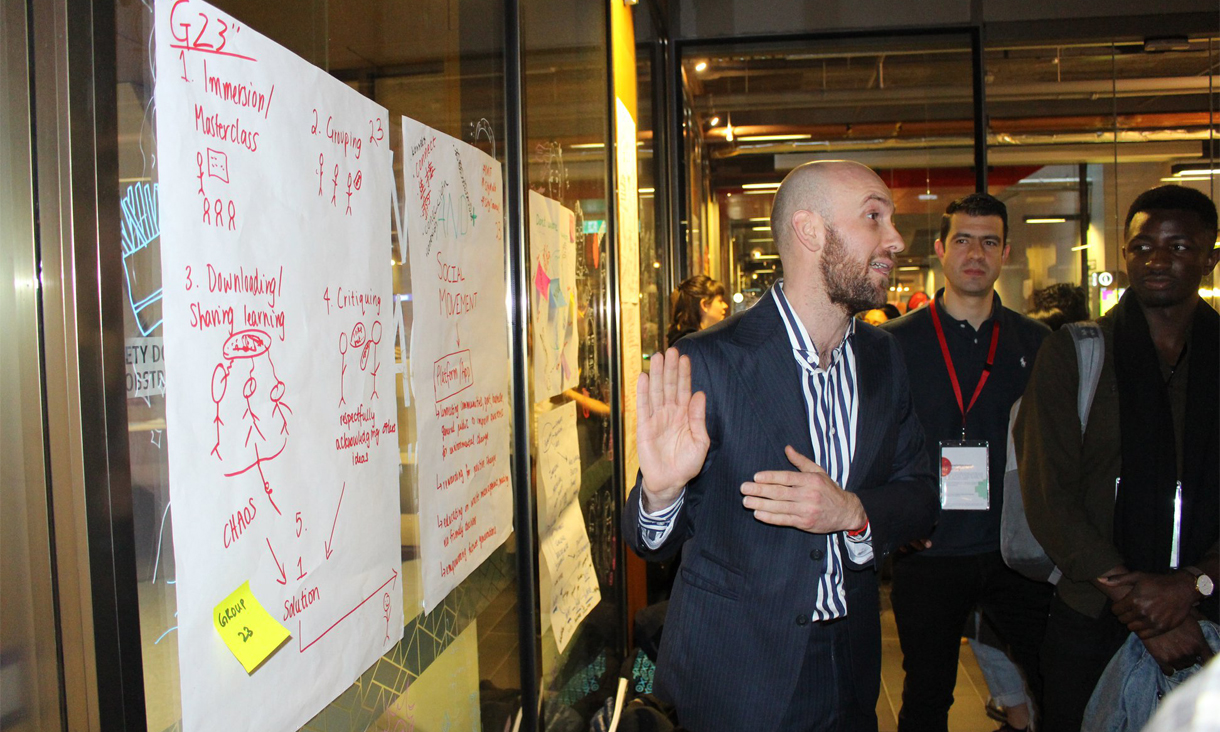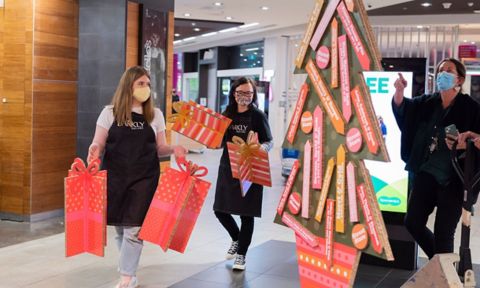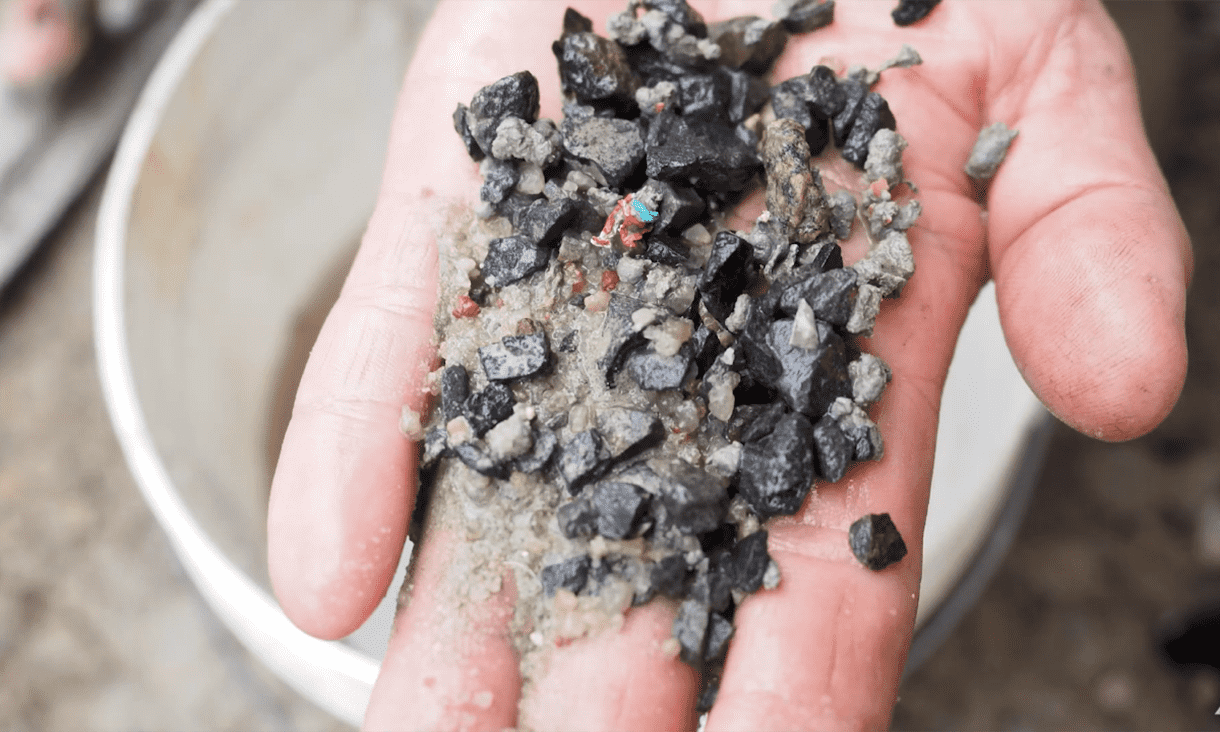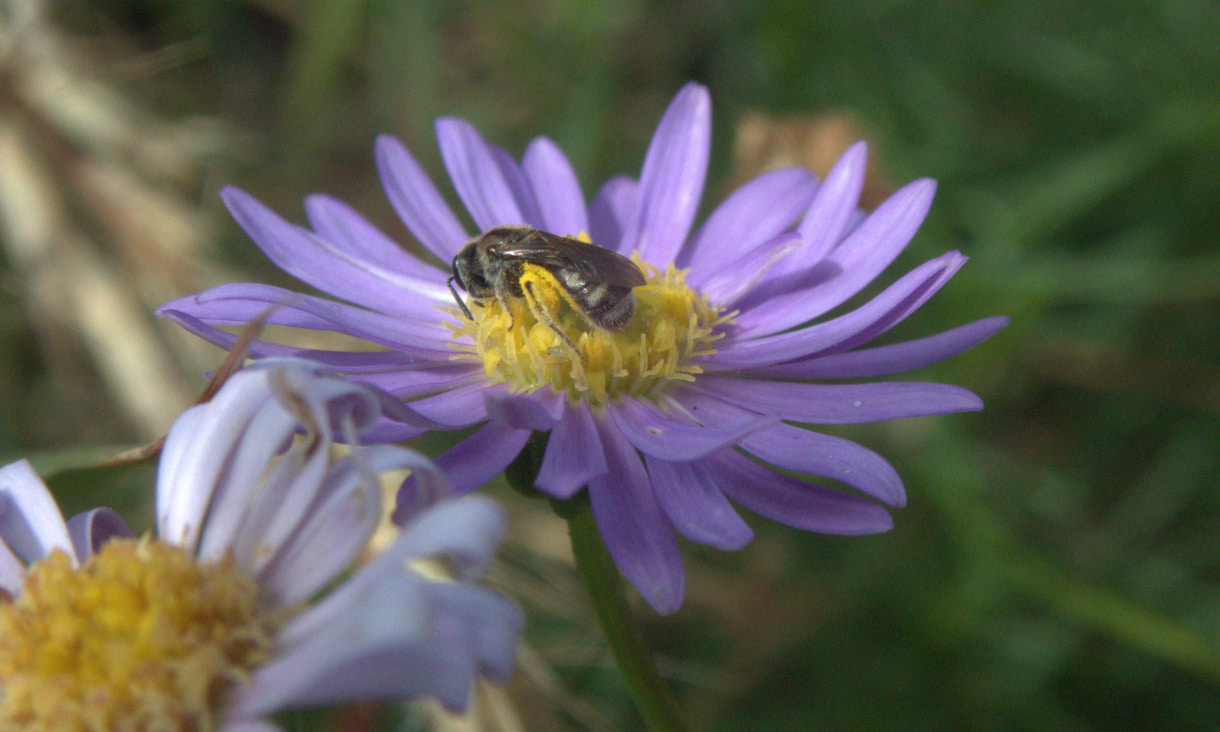New Siemens Digital Energy TestLab launched at RMIT
RMIT and Siemens have announced a new Digital Energy TestLab that’ll allow students and researchers to simulate intelligent electrical systems for smart cities in a Victorian first.
Visual Merchandising students bring Christmas cheer to Brunswick with sustainable decorations
Students from RMIT’s College of Vocational Education have gone above and beyond their course requirements to collaborate on ‘Home for Christmas’, an installation of recycled Christmas decorations at Barkly Square.
Soft plastic packaging recycled into sustainable concrete
RMIT research has helped create concrete made with soft plastic in a redeveloped carpark – the first time the circular-economy technology has been used in an Australian commercial project.
Food and housing crisis for Melbourne’s native bees
RMIT researchers have called on Melburnians to plant the right plants and create the right homes for native pollinators, for better tomato crops, more flowers and improved urban biodiversity.
